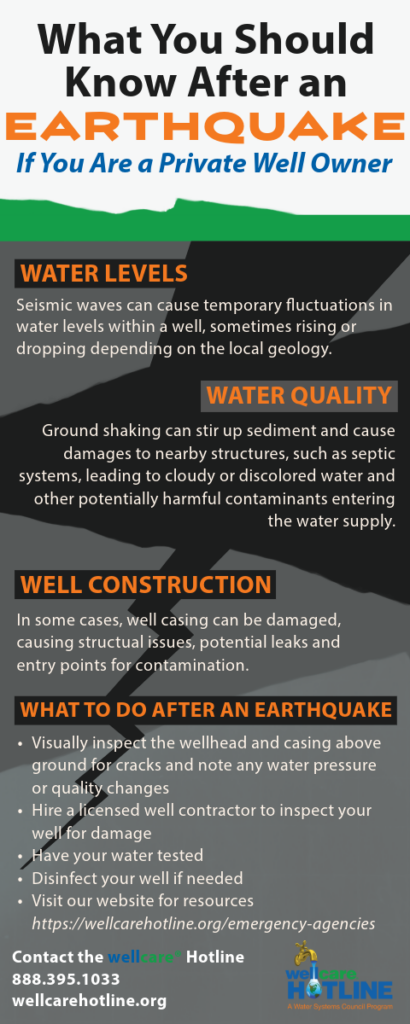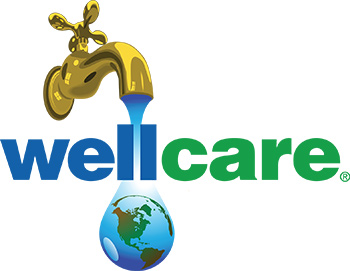While earthquakes are more common in certain areas of the country, like along the West Coast or near fault lines, smaller seismic events can occur almost anywhere. If you have a water well, it’s important to understand how earthquakes can affect your water supply and what to do if you suspect damage.
How Earthquakes Can Impact Water Wells
Even mild earthquakes can shift underground formations, which can impact your well in several ways:
• Fluctuations in Water Levels: Some wells experience a sudden rise or drop in water level after a seismic event. This may be temporary or could signal a more significant shift in the underground water source.
• Changes in Water Quality: After an earthquake, your water may become cloudy, discolored, or have an unusual taste or odor. This can happen when silt, sand, or other
materials are shaken loose into the aquifer.
• Contamination Risks: Cracks in the casing or surrounding ground can allow bacteria or surface water to enter the well. This can pose a serious health risk if not addressed promptly.
• Physical Damage to Well Components: Strong earthquakes can damage well casings, pipes, seals, or even the pump system, especially if the well is older or not properly constructed.
What to Do After an Earthquake
If an earthquake occurs in your area, no matter how small, take these steps to check on your well system:
1. Inspect the area around your well. Look for visible signs of damage such as cracks, leaning, or displaced soil near the wellhead.
2. Check water clarity and pressure. Turn on the tap and note any changes in water appearance, taste, odor, or pressure. Murky water could indicate contamination or aquifer disturbance.
3. Test your water. It’s a good idea to test your well water after any seismic activity, especially for bacteria and nitrates. These are common contaminants that can enter through cracks or disrupted soil.
4. Contact a licensed well contractor. If you suspect physical damage or if your water quality has changed, a well professional can inspect and assess your system. Do not attempt repairs yourself.
5. Disinfect the well if needed. If your test results indicate bacterial contamination, your well may need to be disinfected. You can find instructions on our website or contact the wellcare® Hotline for help.
Be Prepared
Earthquakes can happen without warning. Here’s how to stay ready:
• Keep a record of your well’s construction details and past water tests.
• Know how to shut off power to your pump system in case of an emergency.
• Store emergency water—at least one gallon per person per day for three days.
• Have your well inspected regularly to ensure it’s structurally sound.
If you’re in an earthquake-prone region or have recently experienced tremors, don’t wait to check on your well. Your water safety could depend on it.
Have questions? Contact the wellcare® Hotline at 888-395-1033 or use our interactive map for testing help and contractor referrals.
